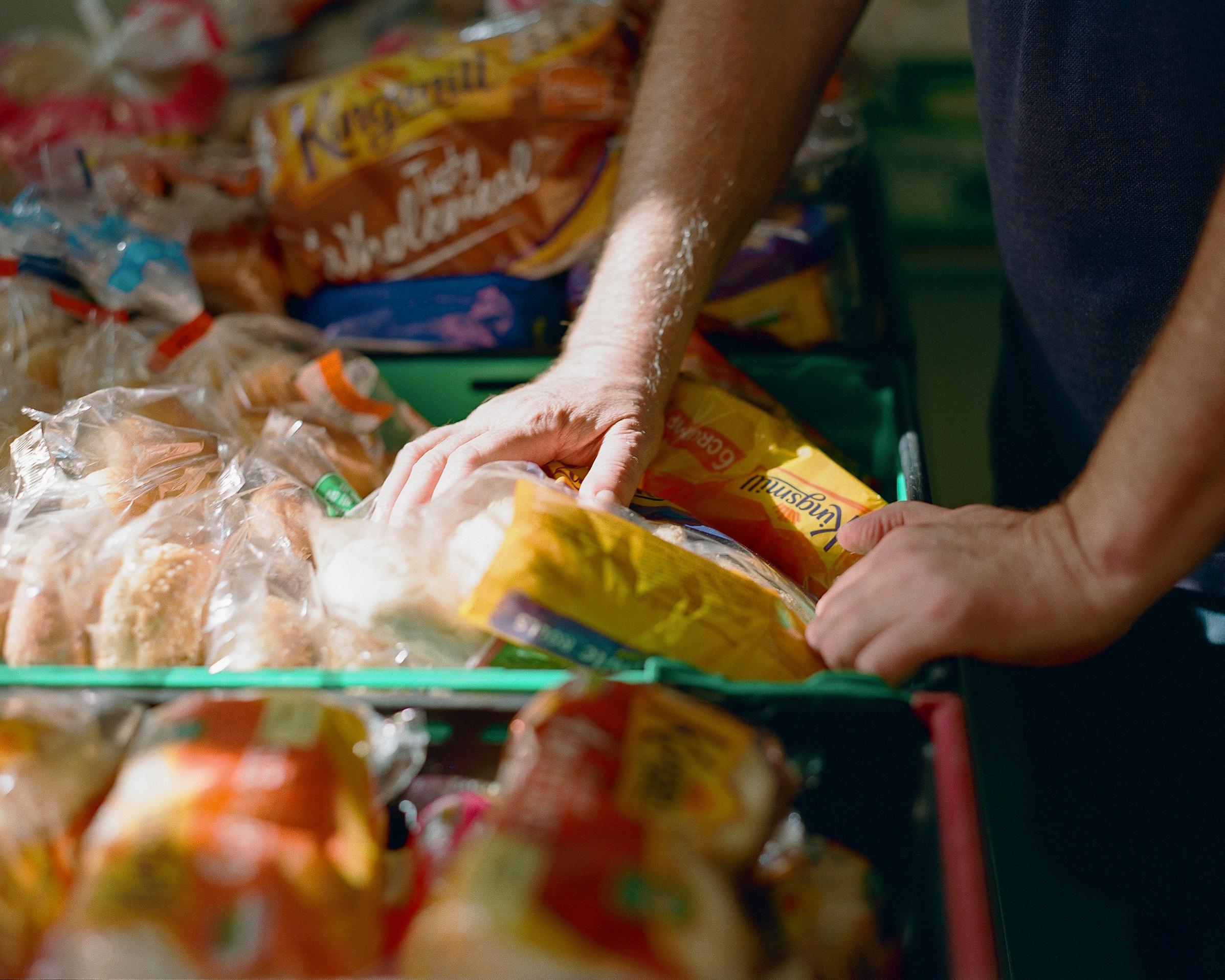Inflation is pushing people deeper into poverty
Our social security system must urgently be strengthened to ensure that, at a minimum, it enables people to meet their basic needs and live with dignity.
A lot of families are really struggling and getting into debt… Times are hard, food is expensive now, the cost of everything is going up.
As inflation hits 5.1%, many more people will find themselves having to cut their cloth accordingly. But if you didn’t have enough to begin with, and you’re already struggling to afford the essentials, there comes a point where you can snip no further. Then the rising price of essentials simply pulls more people deeper into poverty, as new analysis from JRF shows.
With inflation forecast to continue rising as we head through the depths of winter and into the spring, the gap between incomes and expenditure for people worst-off will grow. It will be measurable in the bills that go unpaid, the meals skipped, the next-size-up coat and shoes gone without, and the evenings spent without heat and light.
Come April social security payments will be uprated by 3.1%, which will close some of the gap but not eliminate it. For many a lot of damage will already be done.
Back in October the OBR forecast inflation to be 4.4% in April 2022. New JRF analysis, based on those OBR forecasts, finds the gap between benefit uprating and the projected cost of living in April would result in around 100,000 individuals being pulled deeper into poverty (below 50% median income after housing costs, which is often used as the benchmark for deep poverty) if inflation was 4.4% in April 2022. The majority (7 in 10) will live in households with children, and around half will live in working households. Considering today’s higher inflation figure, if inflation were to stay as high as 5.1% in April, our model suggests the number of people being pulled into deep poverty would double to around 200,000.
This analysis begs the question of how benefits should be uprated, but perhaps more fundamentally it begs a question about the basic ability of our social security system to ensure people can meet their essential needs.
Inflation is already hitting people on the lowest incomes (the bottom 10%), with IFS analysis showing rising energy costs playing a particularly big role. The impact of the pandemic and the cut to Universal Credit means many people already had less money in their pockets; now what they do have doesn’t buy as much as it used to. Low-income families spend a much greater proportion of their income on essentials like housing, energy and food compared to better-off households. And while buying a new mattress or booking a holiday can feasibly be put off, spending on essentials cannot be deferred to next month.
The hit to low-income household budgets through the pandemic has left families all the more exposed. While better-off families tended to build up their savings, providing a shock absorber for rising prices, worse-off families are being dragged down by debt. A third of low-income households (3.8 million) are already behind on their bills, and 4.4 million households took out new or increased borrowing during the pandemic.
The picture is especially stark for people who are out of work and reliant on social security for their income. People looking for a job or unable to work because they are sick, disabled or caring for a very young child have already seen their incomes fall by £20 per week because of the cut to Universal Credit. Those on legacy benefits never even received the increase in the first place. This comes on top of a decade of cuts and freezes to social security that have left the protection offered to people out of work at its lowest level in 30 years.
Some of the pain will be mitigated for low-income working people, who will benefit from the changes to the Universal Credit taper and work allowance set out in the October Budget. But even here the cost of essentials will outweigh the gain for many, as the number of working people being pushed into deeper poverty shows.
Warning signs have been flashing for some time – JRF has charted rising levels of destitution, the Trussell Trust have seen rising foodbank use, and Citizens Advice are seeing more people seek advice for a range of problems. Rising prices further piles on the pressure, eroding incomes and pushing more people deeper into poverty. Our social security system must urgently be strengthened to ensure that, at a minimum, it enables people to meet their basic needs and live with dignity. In a country like ours that should never be in doubt.

This story is part of the deep poverty and destitution topic.
Find out more about our work in this area.
